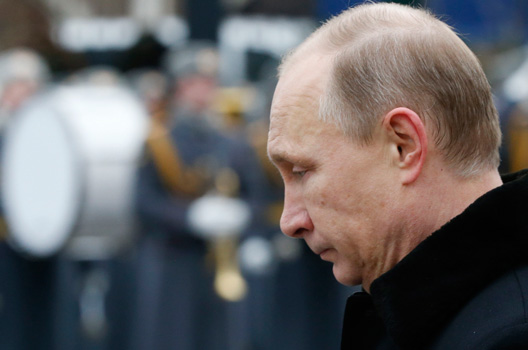 A potentially significant Russia sanctions action flew under the radar and escaped broad notice in the wake of the fallout from special prosecutor Robert Mueller’s investigation last week.
A potentially significant Russia sanctions action flew under the radar and escaped broad notice in the wake of the fallout from special prosecutor Robert Mueller’s investigation last week.
The US Treasury’s Office of Foreign Assets Control (OFAC) and the US State Department released guidance on implementation of the Countering America’s Adversaries Through Sanctions Act of 2017 (CAATSA). These went beyond the Obama administration’s actions to implement congressional sanctions on Russia in 2014, by creating significant risk for anyone seeking to do business with designated Russians or in Russian frontier energy projects (shale, Arctic offshore or deep-sea oil).
Our initial take is that the administration’s guidance is solid and strong. Despite being forward-leaning, the guidance provided by OFAC and the State Department was carefully crafted to preserve sanctions unity with the European Union (EU), arguably the most critical factor in the current sanctions regime.
Sibur is minority owned by Gennady Timchenko, who was designated essentially for being a money man for Russian President Vladimir Putin, and Kirill Shamalov, who is Putin’s son-in-law and received his stake from Timchenko after the latter’s designation by OFAC.
Further, Sibur is majority owned by Leonid Mikhelson, the largest shareholder of Novatek, a Russian oil company subject to sanctions in which Timchenko also maintains a significant ownership stake.
Despite these connections, it is not clear that Ross violated any of the Russia sanctions, but the ethics of dealings with a company so closely linked to the Kremlin and to Putin’s purported personal fortune will create yet another Russia-related challenge for this administration. The Commerce Department is one of the US government agencies responsible for Russian sanctions policy and implementation, which creates the appearance (and perhaps the reality) of a conflict of a conflict of interest, the standard central to the US government’s ethics rules. One might ask, and we expect Ross to be asked, about the ethics and propriety of maintaining such business relationships, even if sanction-compliant.
OFAC’s guidance on Section 228 of CAATSA lays the groundwork to implement a full-scale secondary sanctions regime for designated individuals and entities—specially designated nationals, or SDNs, the term of art for full Treasury blocking sanctions—under the Russia sanctions program. (Appropriately, this does not apply to those under sectoral—e.g., financial or defense technology—sanctions.)
Secondary sanctions may appear a somewhat artificial construct, but the policy upshot is this: it effectively means that it doesn’t matter what kind of business you are doing with an SDN, if you know you are doing it, and it meets significance thresholds, then you can be designated yourself. Section 228 was originally intended to target sanctions evaders, but OFAC’s guidance goes well beyond just evasion and effectively makes Russian SDNs as toxic as SDNs in the Hezbollah, Iran, and North Korea programs.
State Department guidance on Sections 225 and 232 set out a powerful set of measures at the US government’s disposal to prevent development of frontier Russian oil projects already sanctioned by the United States and the EU, and to impair Russia’s ability to construct and finance new (not existing) gas export pipelines.
Similarly, OFAC guidance on Section 226 lays out the considerations and conditions for imposing sanctions on foreign financial institutions for significant transactions with Russian SDNs. Although these provisions may never be used, this guidance goes well beyond the Obama administration’s effective disregard for the sanctions contained in the Ukraine Freedom Support Act of 2014, and suggests that this administration—at least part of it—may be more willing to use the threat of such powerful sanctions measures than the previous one.
As we had recommended earlier this year in our brief on the CAATSA, last week’s guidance also makes clear that pipeline-related sanctions in Section 232 will not include projects already underway and will not be implemented absent coordination with EU allies. Additionally, parts of the guidance on Sections 225 and 226 suggest both are unlikely to be used dramatically at present.
However, by going out with such broad guidance, including details, and most importantly, by signaling a full-scope use of Section 228’s broad powers, OFAC and the US State Department have sent a message of caution to the business community that it ought to be wary of doing business with designated Russians, including cronies like Gennady Timchenko and defense sector operators like Kalashnikov.
The administration has yet to issue implementing regulations, which will contain more information on how broadly this law will be interpreted. More immediately, the public, and especially the business community, should pay careful attention over the next four to six weeks for another US “sanctions maintenance” action against Russia, timed, as has been usual, with the six-month EU decision on rolling over its existing sectoral sanctions. Any CAATSA-related sanctions imposed in the next package would move the Russia sanctions program into a new phase and signal that the United States, in coordination with the EU, is prepared to use these expansive authorities to push Moscow into serious discussions on implementing its Minsk commitments to end the war in eastern Ukraine and to restore Ukraine’s territorial integrity.
Notwithstanding the delay on issuing some guidance and reports, Congress ought to be gratified by these actions, though it is likely to hold judgment until the administration develops a track record of action, particularly regarding Russia’s defense and intelligence sectors, as we discussed previously.
Brian O’Toole is a nonresident senior fellow in the Atlantic Council’s Global Business and Economics Program. Follow him on Twitter @brianoftoole.
Daniel Fried is a distinguished fellow in the Atlantic Council’s Future Europe Initiative and Dinu Patriciu Eurasia Center.
Image: Russian President Vladimir Putin in September announced plans to develop nuclear and conventional weapons to counter the United States and NATO. (REUTERS/Sergei Karpukhin)
